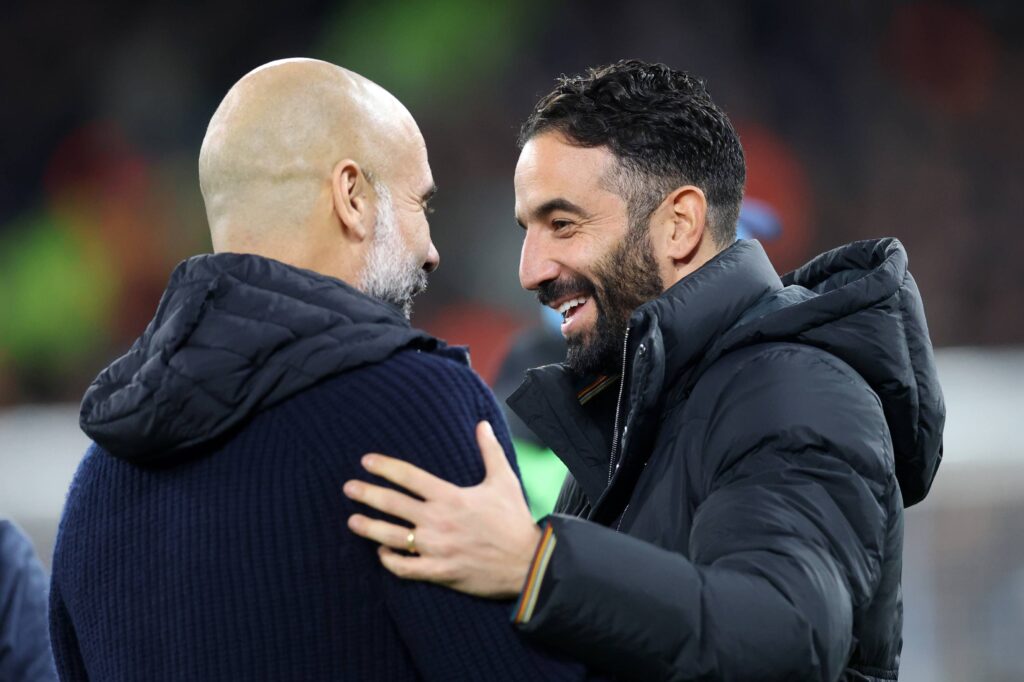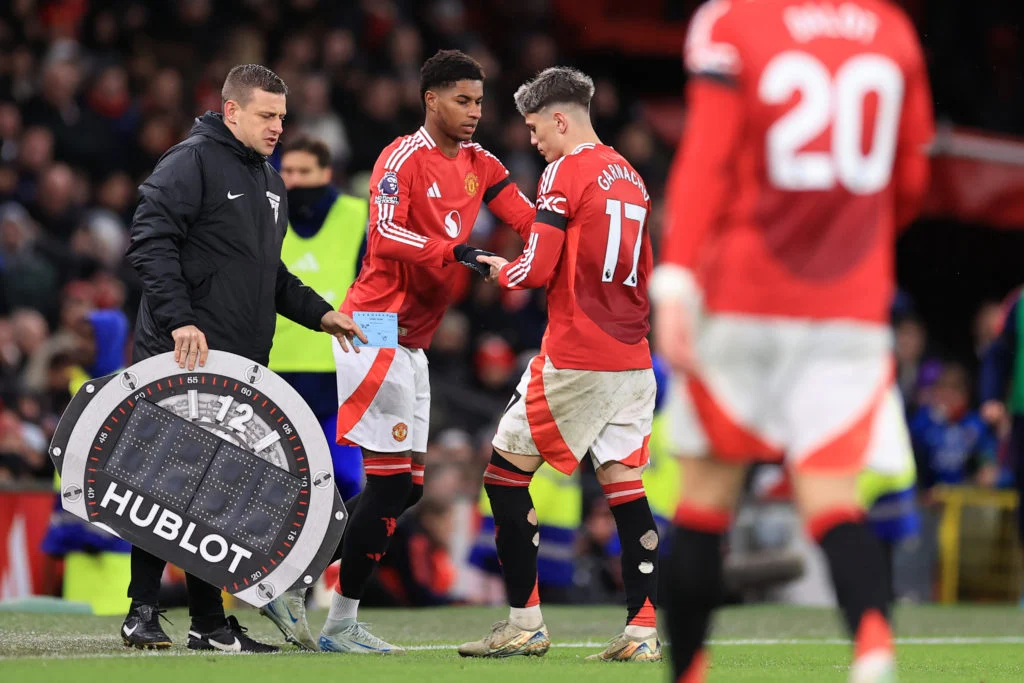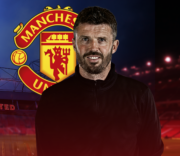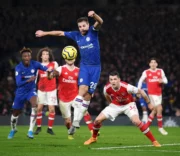
In a recent Premier League derby, Ruben Amorim made a bold decision to leave two key players, Marcus Rashford and Alejandro Garnacho, out of Manchester United’s squad for their match against Manchester City. Despite this surprising choice, United triumphed 2-1 without them, sparking comparisons to Erik ten Hag’s handling of Jadon Sancho last year.
Amorim’s Approach: A Focus on High Standards
When asked about the omission of Rashford and Garnacho, Amorim explained that the decision was based on several factors, including training performance, overall engagement with teammates, and commitment to team dynamics. “We evaluate everything: training, performance, how players interact with teammates, and their attitude both on and off the field,” he said. Amorim emphasized that no player was singled out for punishment, and both Rashford and Garnacho were given a chance to bounce back, with a clean slate moving forward.
“I pay attention to everything, from how players prepare for games to their attitude during training. After this game, a new week begins, and if they perform well, they’ll compete for a place in the squad,” he added. Amorim’s comments indicate a focus on continuous improvement and accountability within the team, offering players the chance to earn their place through consistent effort.
The Sancho Situation: A Different Story
In contrast, Jadon Sancho’s fallout with ten Hag in 2023 was much more public and contentious. After being dropped from the squad for a match against Arsenal, ten Hag cited Sancho’s poor training performances as the reason for his exclusion. “You have to reach the level every day at Manchester United,” the manager said, making it clear that Sancho had fallen short of expectations. Unlike Garnacho and Rashford, who seemed to accept their manager’s decision without issue, Sancho publicly criticized ten Hag, claiming he had been unfairly scapegoated.
Sancho’s social media post defending his professionalism and stating his desire to continue fighting for the badge was a far cry from the more measured reactions of his teammates. His refusal to apologize to ten Hag led to a prolonged exile from the first team, and Sancho is now on loan at Chelsea.

Amorim’s Effective Communication vs. Ten Hag’s Public Criticism
One key difference between Amorim’s handling of Garnacho and Rashford and ten Hag’s approach to Sancho is the way communication was handled. Amorim’s comments, while firm, were also open enough to avoid any public criticism of the players as poor trainers. On the other hand, ten Hag directly called out Sancho’s training performances, which, in hindsight, may have escalated the situation.
Amorim’s transparent, yet diplomatic style of communication allowed him to navigate the difficult decision without creating a public rift. Meanwhile, Sancho’s reaction to ten Hag’s comments led to a permanent fallout. This contrast highlights the importance of how managers communicate their decisions to players and the media, especially when dealing with high-profile figures like Rashford, Garnacho, and Sancho.
Conclusion: A Tale of Different Reactions
While the situations involving Rashford, Garnacho, and Sancho may appear similar on the surface, the differing reactions and handling of these situations reveal important lessons in management and communication. Amorim’s focus on providing a path for redemption, combined with his clear standards, contrasts sharply with the fallout that ensued from ten Hag’s public criticism of Sancho.
It remains to be seen whether Garnacho and Rashford will respond positively to Amorim’s leadership, but one thing is clear: Amorim’s approach offers a more open and constructive way to deal with challenging squad decisions.































